A police raid on the Amu Leaf Treaty Truckhouse violates constitutional protections for Aboriginal and treaty rights and the 1752 Peace and Friendship Treaty.
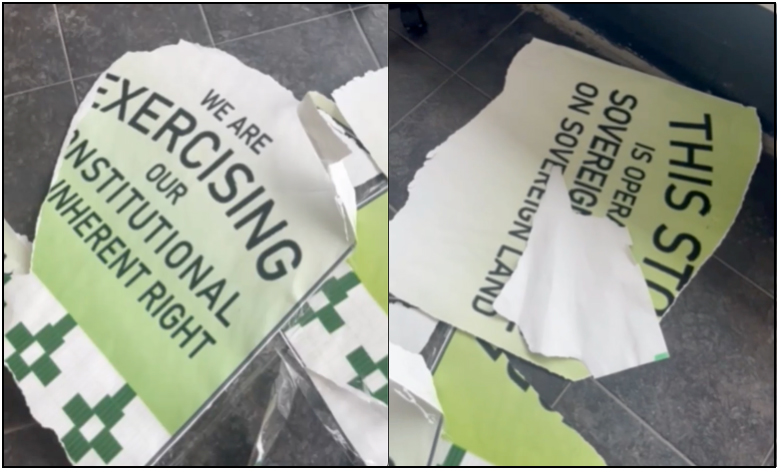
HALIFAX / KJIPUKTUK – On January 31st, officers with the Halifax Regional Police/RCMP integrated Criminal Investigation Division raided Amu Leaf, a popular Mi’kmaq Truckhouse located at 14 Highfield Park Dr. in Dartmouth. The Truckhouse operates in accordance with the Mi’kmaq Peace and Friendship treaties made with the British Crown, and sells a wide variety of Mi’kmaq trade goods including indigenous cannabis products.
According to a police report published on the City of Halifax’s website, officers grabbed over 50 lbs. of cannabis, 300 grams of cannabis resin, 400 edibles and $3,000 in cash from the Mi’kmaq truckhouse. They also trashed the store, and ripped up and threw on the floor signage and information relating to Mi’kmaq treaty rights. Four Mi’kmaq people were arrested, including Amu Leaf spokesperson Thomas Durfee, a member of Millbrook First Nation, and an executive member of the Micmac Rights Association.
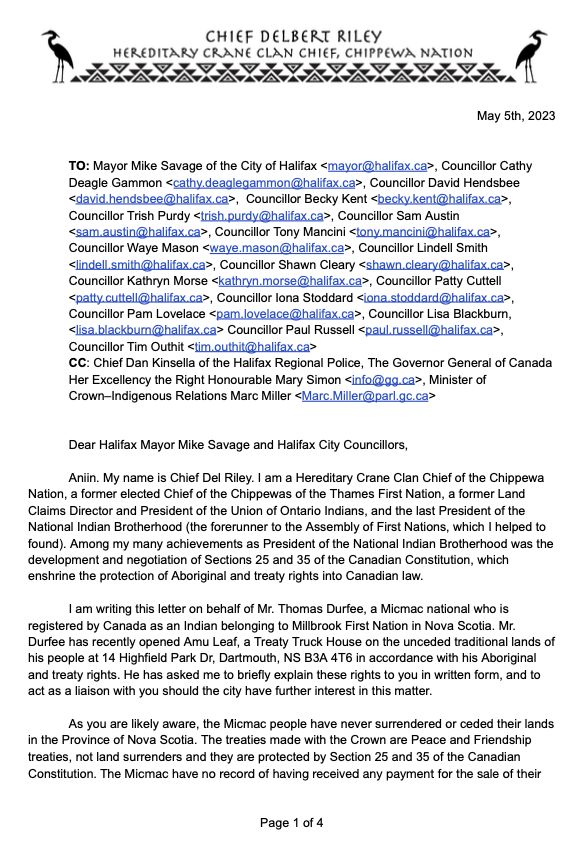
Treaty Truck house no surprise to authorities
Mr. Durfee’s association with the Truckhouse was no secret to the City of Halifax or the Halifax Regional Police (HRP). On May 5th, 2023 former National Chief Delbert Riley wrote a letter to the City and to the HRP indicating that the truckhouse was open, and that Mr. Durfee was exercising his constitutionally protected inherent Aboriginal and treaty right “to support himself from the lands and waters that the Creator put his people upon and from the animals and plants the Creator provided. These rights include the right to engage in trade, to participate in the Micmac economy, and to provide medicines to people in need.”

Chief Riley referenced a number of documents that describe the rights of Mr. Durfee and other Mi’kmaq nationals to engage in trade on their unceded homelands. These include the “Declaration of First Nations” produced by the Assembly of First Nations to define Aboriginal Rights after the “repatriation” of the Canadian Constitution in 1982; the 1752 Peace and Friendship Treaty which recognizes the rights of Mi’kmaq people to establish “Truckhouses” at locations of their choosing and which states that they have “free liberty to bring for Sale to Halifax or any other Settlement within this Province, Skins, feathers, fowl, fish or any other thing they shall have to sell, where they shall have liberty to dispose thereof to the best Advantage;” Canada’s “United Nations Declaration on the Rights of Indigenous Peoples Act which recognizes Indigenous economic rights;” and sections 25 and 35 of the Constitution Act, 1982 which Chief Riley personally negotiated as the President of the National Indian Brotherhood in the early 1980s and which entrench Aboriginal and treaty rights in Canada’s highest law.
In his letter, Chief Riley offered to meet with City and police representatives on behalf of Mr. Durfee to provide a basis for dialogue and discussion about “how Mr. Durfee’s constitutionally protected Aboriginal and treaty rights apply in this matter.” Chief Riley also wrote the City of Halifax and the HRP two other letters in September and December of 2023 as two other Treaty Truckhouses opened in Halifax. According to Chief Riley, neither the City or the HRP responded to any of his attempts to open a dialogue with them.

Police raid showcases “ignorance and racism”
In an interview with Dispensing Freedom, Mr. Durfee stated that when the Halifax Regional Police/RCMP – led by Detective Constable Jeffrey Seebold – raided Amu Leaf, the officers displayed significant “ignorance and racism” in their conduct. Durfee says that the officers “ripped all of our treaty materials off the walls and shredded them, tore down all our signage from the walls, and smashed all of our security cameras.”
Mr. Durfee said that as he entered the store to approach the officers carrying out the raid, he was put under arrest after he identified himself. He said the officers were civil towards him until he began speaking about his constitutionally protected Aboriginal and treaty rights at which point Detective Constable Seebold and Sergeant D’Arcy Hueston began treating him poorly and unprofessionally.
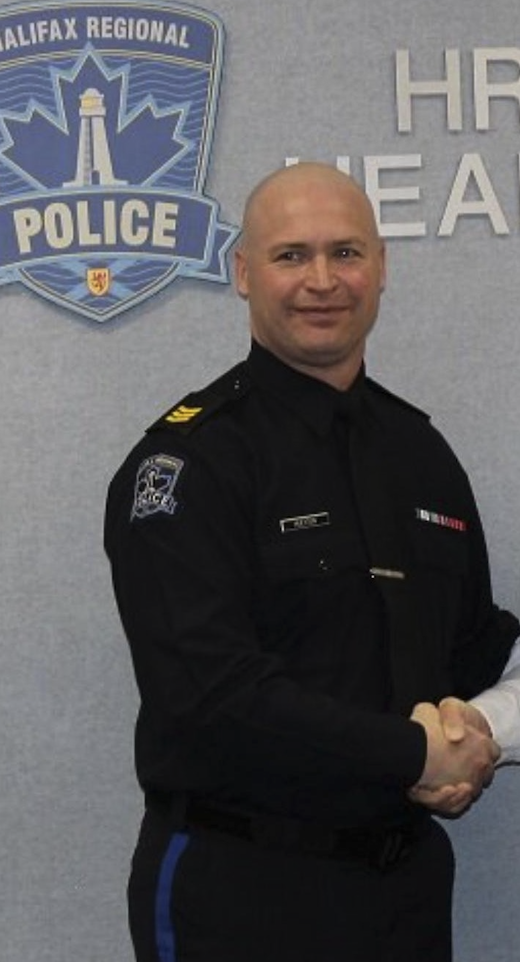
According to Mr. Durfee, Sergeant D’Arcy Hueston told him that “I’ve been watching you since day one” and said “what were you thinking operating a dispensary?” Durfee said he replied that he had taken the steps of informing the police on “day one” that his store was open. He further said that “this is not a dispensary, it’s a Treaty Truckhouse. Look around – you see our Indigenous cultural arts, jewelry & textiles? We have our treaties, certificate and letter displayed here, here and here. Detective Constable Seebold allegedly replied by saying, “yeah, you should have stayed on reserve where you would have been a lot safer.” From 1885 to 1941, Canada imposed a formal “pass system” where Indians were not allowed to leave the reserves the Indian Act confined them to without a pass from the local Indian Agent.
When Mr. Durfee explained that Clause 4 of the Treaty of 1752 gave him the right to “have free liberty to bring for Sale to Halifax or any other Settlement within this Province, Skins, feathers, fowl, fish or any other thing they shall have to sell, where they shall have liberty to dispose thereof to the best Advantage,” Detective Constable Seebold replied by saying “Okay, well why don’t you sell cocaine?”
Mr. Durfee said that he replied that, “cocaine is an illegal controlled substance everywhere in North America while our indigenous medicinal medicines along with cannabis is Federally and Provincially legal for our people to trade and sell to the best of our advantages.” When Mr. Durfee added that he intended to continue exercising his rights and reopen his Truck House, Sergeant Hueston said “take this piece of fucking shit to the cells.”
According to Mr. Durfee, “they treated us like we were white drug lord kingpins.” Indeed, although Mr. Durfee is a Status Indian officially registered to Millbrook First Nation and a member of the Mimigej (Butterfly) Clan of the Mi’kmaq, Mr. Durfee is listed as being “White Caucasian” in his HRP criminal file, which he was able to view while being transported in the police car. Mr. Durfee noted that “when I arrived at the cells for processing, the jailers and the people processing me were very respectful of me. So were all the uniformed police officers that I interacted with there.”
Dispensing Freedom contacted Detective Seebold for comment in this matter, and specifically inquired about the treatment of Mr. Durfee and the destruction of Aboriginal rights information and Mi’kmaq treaty materials which were ripped up and left on the floor of the Truckhouse. Detective Seebold declined to comment and stated that “I’m in a situation where I work for Halifax Regional Police and I have rules and policies to follow. Those rules and policies tell me that I can’t speak to reporters.”
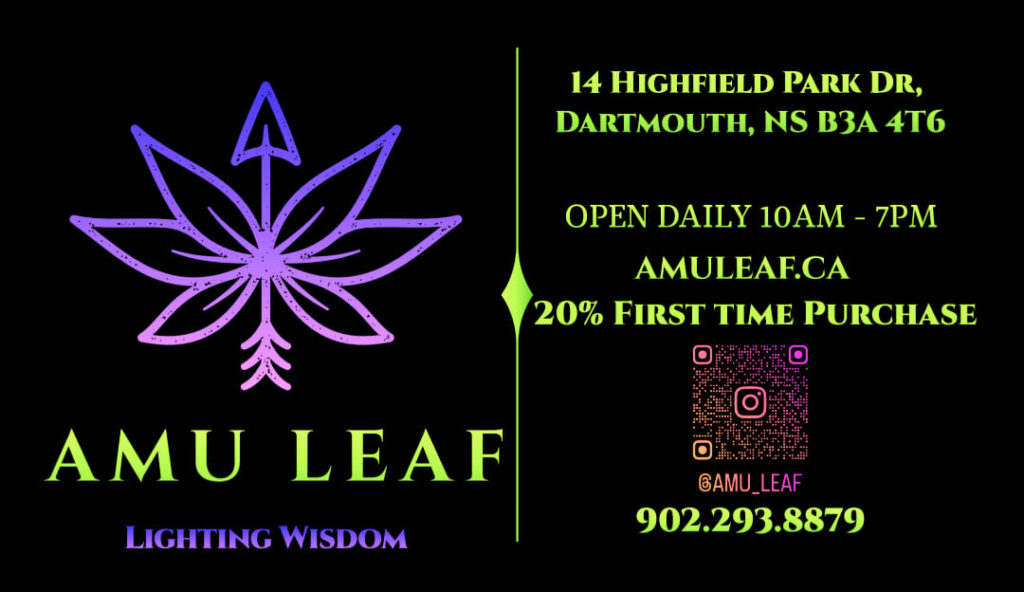
Halifax police dodges media questions
Dispensing Freedom also spoke to HRP Media Liaison, John MacLeod, and requested to interview Halifax Police Chief Don MacLean. As of press time, the office of the Chief has not yet replied to our request for an interview. Officer MacLeod would not speak to the matter over the phone, but requested that all interview questions be emailed to him, and said that he would see who he could find to answer them.
Dispensing Freedom sent a list of 15 questions to Officer MacLeod which addressed a wide range of issues including: whether or not the HRP considered the various Peace and Friendship Treaties made between the Mi’kmaq Nation and the Crown (1725-1779) as being recognized and protected by Sections 25 and 35 of Canada’s Constitution Act; what policy manuals or directions for officers that inform or guide the HRP’s interpretation of Section 25 and 35 Aboriginal and treaty rights; why the HRP did not take up the repeated offers of Chief Riley to meet with them; if Detective Seebold was aware of the Aboriginal and treaty rights at play, and why Mr. Durfee is listed as being “White Caucasian” in his HRP criminal file.
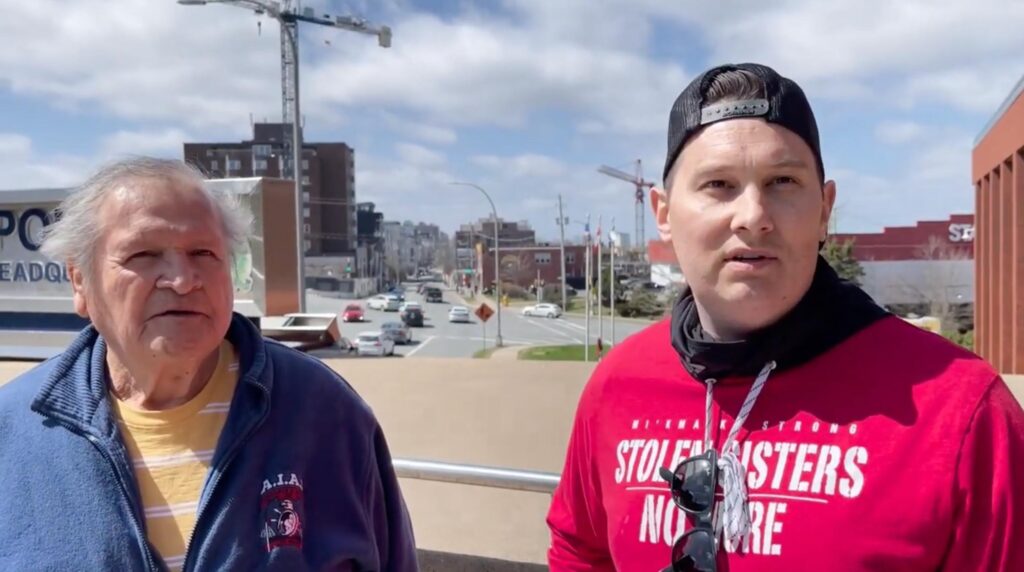
Officer MacLeod responded via email to state, “As this case is before the courts, I am not able to provide any further details in relation to the investigation above what has been previously publicly provided.” He added, “I can tell you that officers do receive cultural awareness training in relation to Indigenous peoples.”
Avoiding any substantive engagement with the questions raised, Officer MacLeod concluded by stating that “We encourage anyone who has concerns in relation to their interaction with a member of the Halifax Regional Police to contact our office of Professional Standards so that the matter can be looked into and dealt with accordingly.”
Public meeting with Chief Del Riley to be held
The Amu Leaf Truckhouse has reopened, and a public meeting organized by the Micmac Rights Association will be held on the evening of Wednesday, February 21st in Halifax. Former National Chief Delbert Riley will be speaking as will representatives of the Micmac Rights Association. A petition has been created to support Amu Leaf, and may be signed at the following link.
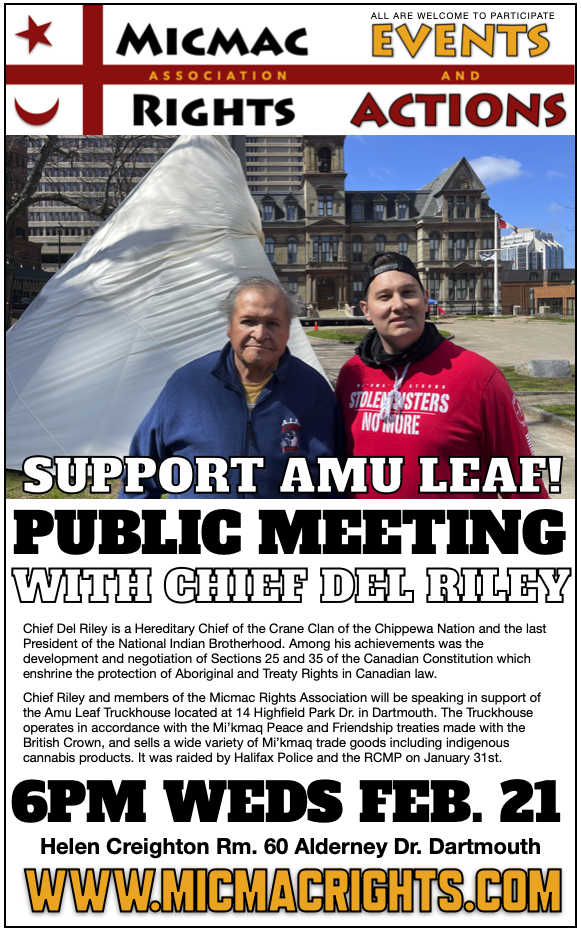

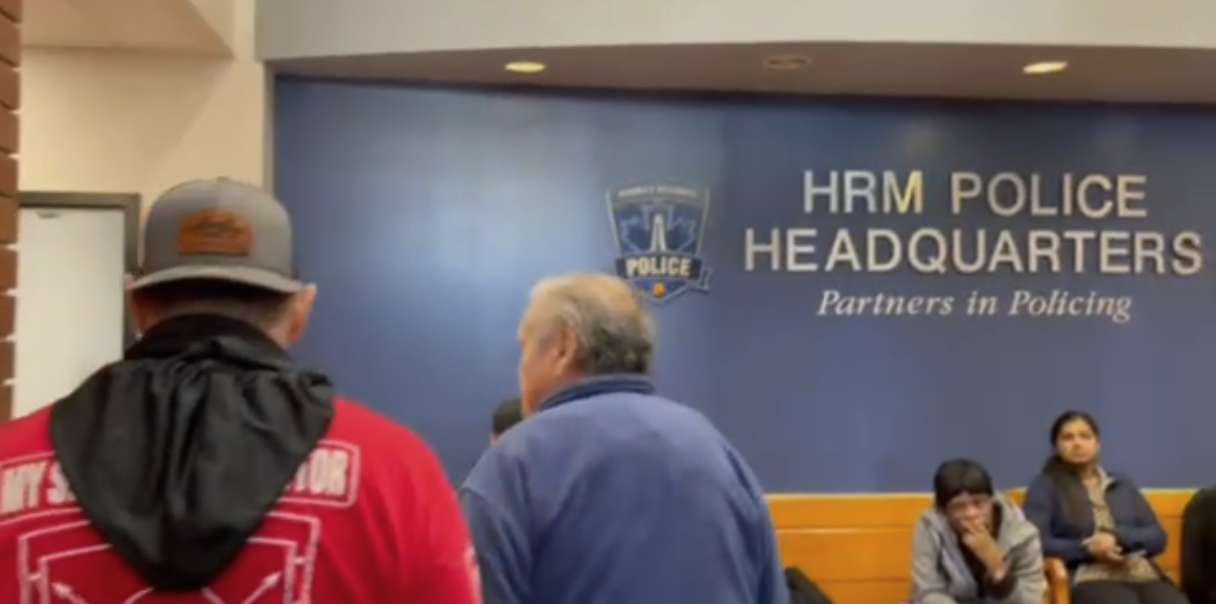



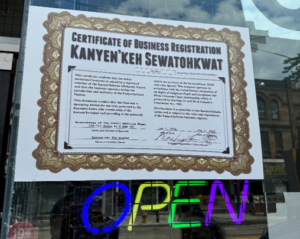
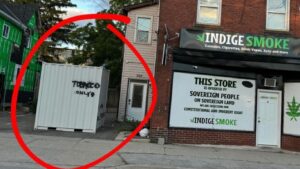
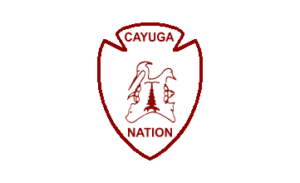




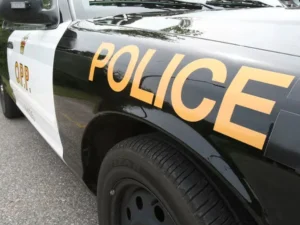
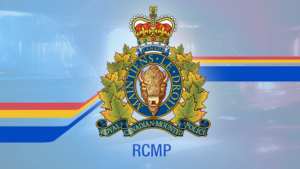


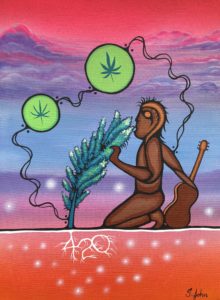


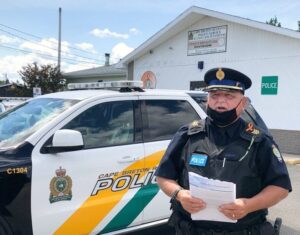






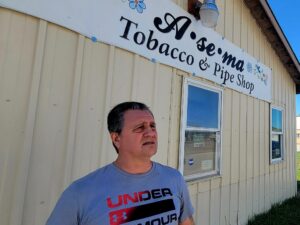
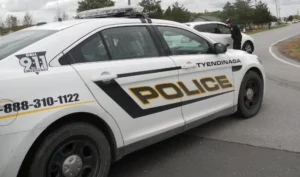







Comments are closed.